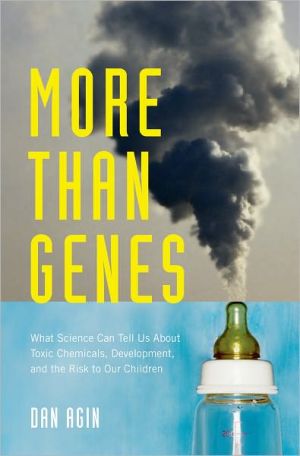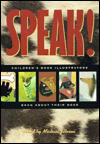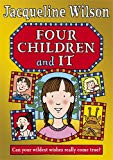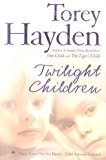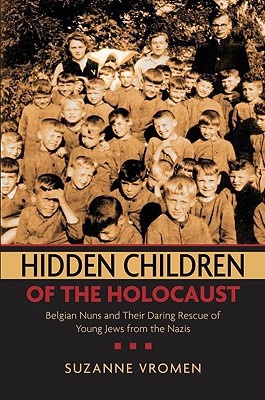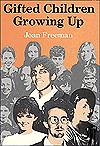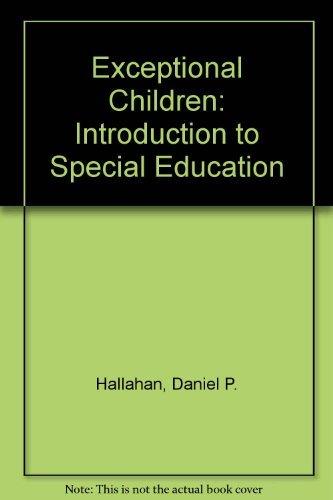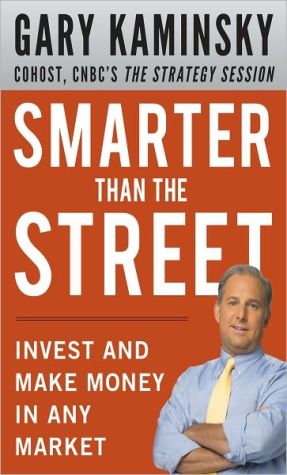More Than Genes: What Science Can Tell Us About Toxic Chemicals, Development, and the Risk to Our Children
Agin, Dan
We are all shaped by our genetic inheritance and by the environment we live in. Indeed, the argument about which of these two forces, nature or nurture, predominates has been raging for decades. But what about our very first environment—the prenatal world where we exist for nine months between conception and birth and where we are more vulnerable than at any other point in our lives?
In More Than Genes, Dan Agin marshals new scientific evidence to argue that the fetal environment can be just as crucial as genetic hard-wiring or even later environment in determining our intelligence and behavior. Stress during pregnancy, for example, puts women at far greater risk of bearing children prone to anxiety disorders. Nutritional deprivation during early fetal development may elevate the risk of late onset schizophrenia. And exposure to a whole host of environmental toxins—methylmercury, polychlorinated biphenyls (PCBs), dioxins, pesticides, ionizing radiation, and most especially lead—as well as maternal use of alcohol, tobacco, marijuana, or cocaine can have impacts ranging from mild cognitive impairment to ADHD, autism, schizophrenia, and other mental disorders. Agin argues as well that differences in IQ among racial, ethnic, and socioeconomic groups are far more attributable to higher levels of stress and chemical toxicity in inner cities—which seep into the prenatal environment and compromise the health of the fetus—than to genetic inheritance. The good news is that the prenatal environment is malleable, and Agin suggests that if we can abandon the naive idea of "immaculate gestation," we can begin to protect fetal development properly.
Cogently argued, thoroughly researched, and accessibly written, More Than Genes challenges many long-held assumptions and represents a huge step forward in our understanding of the origins of human intelligence and behavior.
Publishers Weekly
According to Agin, a molecular geneticist at the University of Chicago (Junk Science), a “silent pandemic” is causing untold damage to babies while they are in the womb. Toxic chemicals in the environment are assaulting developing fetuses, as are substances (such as alcohol and nicotine) ingested by pregnant women and capable of dramatically altering developmental pathways. According to Agin, the role of the intrauterine environment has largely been ignored by scientists who look to genes and a child's postbirth environment to explain behavior issues, mental illness and IQ. He demonstrates, too, that all the fuss about race and IQ is meaningless because the prenatal environment may have a huge role in determining intelligence. Agin is at his most powerful in the final chapter, in which he argues that without good prenatal care, poverty “readily transforms into an inherited disease.” Agin marshals the scientific data to build an impressive case for his perspective, particularly regarding developmental problems in American babies compared with those in the rest of the world—it is frightening and deserves widespread attention. (Nov.)
| Name in long format: | More Than Genes: What Science Can Tell Us About Toxic Chemicals, Development, and the Risk to Our Children |
|---|---|
| ISBN-10: | 0195381505 |
| ISBN-13: | 9780195381504 |
| Book pages: | 416 |
| Book language: | en |
| Edition: | 1 |
| Binding: | Hardcover |
| Publisher: | Oxford University Press |
| Dimensions: | Height: 5.6 Inches, Length: 8.3 Inches, Weight: 1.1 Pounds, Width: 1.2 Inches |

